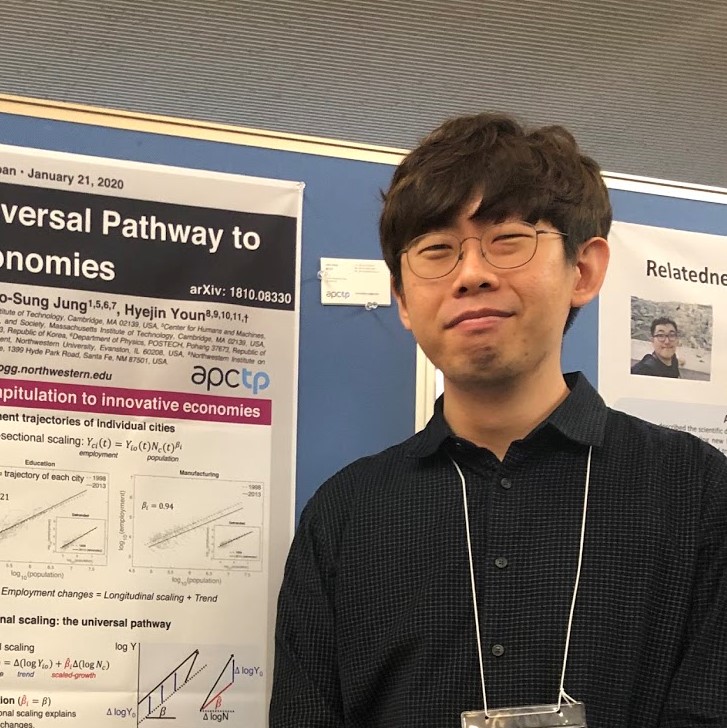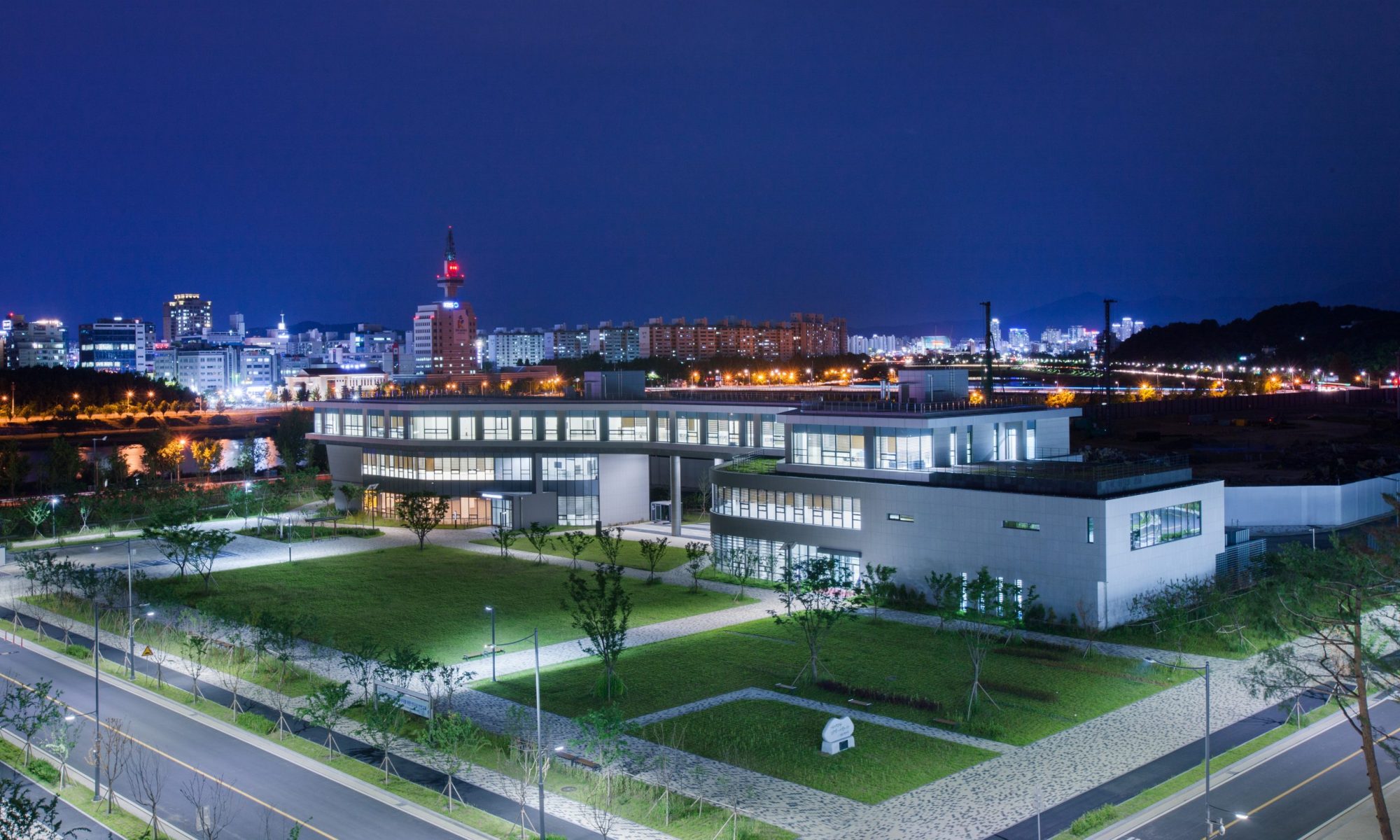
- Brief self-introduction
Inho Hong is a postdoctoral researcher at Asia Pacific Center for Theoretical Physics. His research focuses on understanding social systems through complex systems analysis, with particular interests in urban science, human mobility, scaling theory, economic complexity, and science of science. Inho received his Ph.D. in physics at Pohang University of Science and Technology (POSTECH) in 2019. Previously, he worked at Northwestern Institute on Complex Systems and Kellogg School of Management at Northwestern University as a visiting predoctoral fellow.
- Could you explain your recent research?
I am recently working on two main projects, the urban recapitulation and the gravity model on urban landscapes. The urban recapitulation project is about explaining the longitudinal changes of employment and population in US cities using the urban scaling law. The work on the gravity model is about understanding the unique characteristics of human mobility on centralized urban landscapes. Through these projects, I am trying to answer how spatial constraints shape some regular patterns in social systems and human behaviors.
- What is your future research plan?
I will start working as a postdoctoral researcher at Max Planck Institute for Human Development from March 2020. The main theme of the position is the Future of Work which explains how scientific and technological developments interplay with the labor market and society. Through this work, I hope to find some key drivers of societal changes and show the blueprint of the future of society. Specifically, I wonder how the recent growth of AI and machines will impact urban labor markets and what will be the optimal strategies for these changes. In addition to this work, I am also open to any project on social systems and human behaviors such as cities, human mobility, scaling, and economic complexity.
- What motivated you to research with IBS, and what is the current research in IBS?
Understanding cities and spatial interactions are one of the main parts of my research. Therefore, recent achievements at IBS using satellite imagery are fascinating that it can provide great spatiotemporal information of unknown regions. I started to collaborate with IBS on the relation of urban greenspace and the happiness of developed countries. I believe that this work will attract great attention from researchers and general audiences.
- What are the most challenging and favorite parts of your researches?
Finding high-quality data has always been the most challenging part. Even if I have a great model, it is not proved until it is supported by data. In this sense, I believe that collaborating with the Data Science Group at IBS has great potential to provide impactful scientific findings. The favorite part of my research is the integration of complex systems frameworks and data analysis. Sometimes, a result of data analysis shows a good agreement with an intuitive model, and then I feel like touching the hidden nature of the world! Understanding the mechanism of our world is a great joy to me as a physicist.

